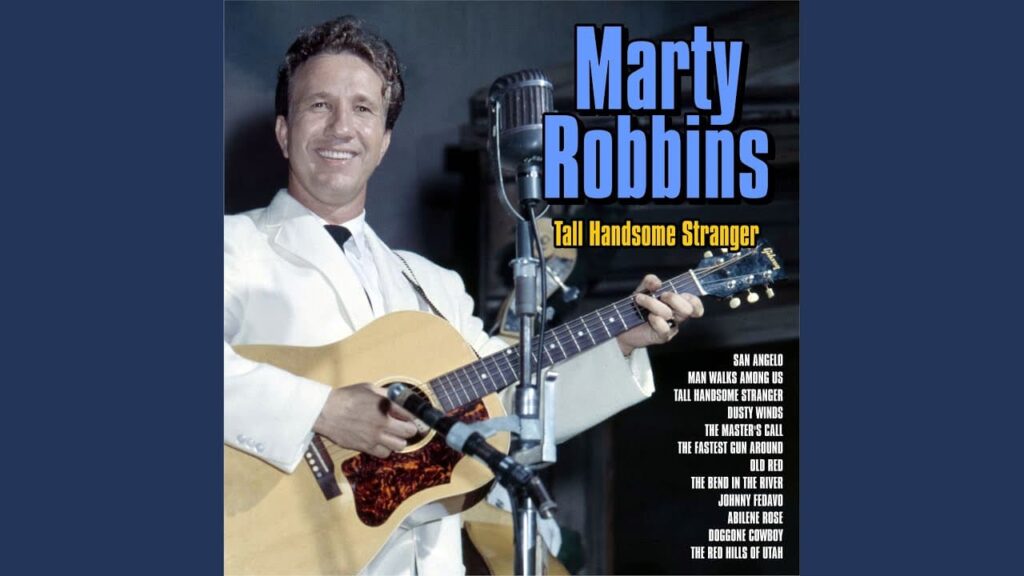
A haunting ballad of a cowboy forever tethered to a fading memory of the only woman he ever truly loved.
When one speaks of the legendary Marty Robbins, the mind often immediately conjures up the dramatic, windswept narratives of his famed “Gunfighter Ballads”—songs like “El Paso” and “Big Iron.” But for those of us who appreciate the subtle, heart-tugging moments in his extensive catalog, there are gems that offer a different kind of nostalgia—songs where the gun is holstered, and the cowboy’s only weapon is a fragile memory. One such track is the achingly beautiful “Abilene Rose.”
“Abilene Rose,” written by the talented J.B. Hosale, was released by Marty Robbins in 1963 on his album, Return of the Gunfighter. Interestingly, while the album itself played heavily on the Western theme he mastered, this track offered a quiet, romantic interlude. Unlike his massive chart-toppers, “Abilene Rose” was not released as a major single and did not secure a ranking on the Billboard Hot Country Singles chart at the time. Yet, its absence from the upper echelon of the charts does not diminish its profound emotional resonance; in fact, it has become a cherished track for dedicated fans, treasured like a beautiful, faded postcard found tucked away in an old family album.
The story woven into this gentle ballad is one of deep, enduring affection and loss. It is a first-person narrative from a cowboy who has traveled far and wide, seen all manner of places, and met many women—but none of them ever measured up to the one he left behind. She is the “Abilene Rose,” a symbol of pristine, irreplaceable beauty and love. The lyrics speak to the universal experience of holding onto a perfect memory: of a woman who was sweet and kind, whose presence was a pure, cleansing force.
“She was sweet and gentle, a vision to behold, / And nowhere that I’ve traveled, has a woman half as true.”
The meaning of the song lies in its melancholy theme: that the first, purest love often casts a shadow over all subsequent relationships. The cowboy is wandering through life, mentally comparing every sunset, every new acquaintance, and every blossoming flower to his perfect, unattainable Rose. It’s the kind of reflective heartbreak that speaks directly to older readers, who understand that time often polishes the memory of a lost love until it shines impossibly bright. It’s not just a song about a woman; it’s a song about the realization that some treasures, once surrendered, can never truly be replaced.
Marty Robbins’ smooth, buttery vocal delivery, often called the “velvet voice,” is perfectly suited to this kind of wistful material. There are no dramatic orchestral swells or rapid-fire lyrics; instead, his performance is controlled and tender, emphasizing the quiet, deep ache of the narrator. It’s a moment of calm reflection amidst the dramatic sweep of his Western epics, reminding us that even the toughest gunfighter carried a tender heart beneath his vest—a heart that could be broken by a memory as easily as by a bullet. This enduring track is a fine example of how Robbins could bring dignity and emotional depth to even the quietest corners of his repertoire, leaving listeners in a reflective mood, smelling the phantom scent of a flower that only blooms in the garden of the past.